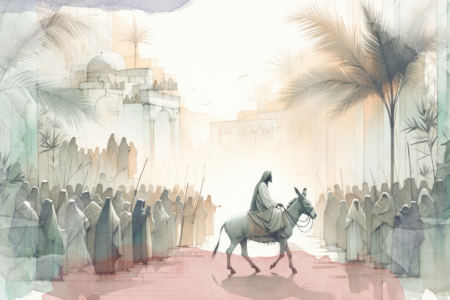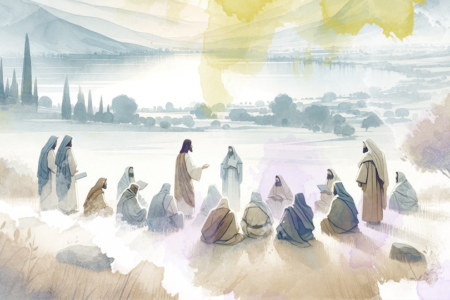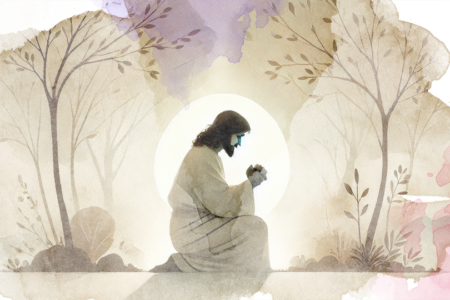The Life, Times And Message Of Isaiah The Prophet PART XXV
THE BOOK OF WOES
ISAIAH CHAPTERS 28-33
In this group of oracles, each beginning with the exclamation, “Woe,” Isaiah warns the leaders of Jerusalem against relying upon Egypt for military help against Assyria. That wicked empire will be destroyed, not with the sword of man, but through divine intervention.
The first which is also the oldest oracle in this group, (chapter 28:1-6), is directed against “the drunkards of Ephraim.” It is a warning to the rulers of Jerusalem to repent and to mend their ways lest they share the fate of Samaria.
The last woe of the series, (33:1-12), is directed against Assyria. Most of the oracles, with the exception of the first were apparently delivered during the reign of Sennacherib (705-681 B.C.), before his disastrous attempt to capture Jerusalem in 701 B.C.
Chapter 28
1-6 An oracle against Samaria
1 Woe to the crown of pride of Ephraim’s drunkards,
And to the fading flower of his splendid beauty,
Which is at the head of the lush valley,
You who are struck down by wine!
2 Behold the LORD has a mighty and strong one,
Like a hailstorm, a destroying tempest,
He will throw down to the ground with the hand.
3 He will trample them with the feet,
The crown of pride of the drunkards of Ephraim.
4 And the fading flower of his splendid beauty,
Which is at the head of the lush valley,
Shall be like the early ripe fig before summer,
Which, whoever sees it, as soon as it is in his palm
gulps it down.
5 In that day shall the LORD of hosts be for a crown of glory,
And for an ornament of beauty to the remnant of this people.
6 A spirit of justice, to him who sits in judgment,
A spirit of courage, to them who turn the battle away from the gate.
Comment:
1 Woe . . . to Ephraim’s drunkards
Isaiah denounces the proud rulers of Samaria as irresponsible and ungodly drunkards.
2-3 They will soon experience the wrath of God through the terrible power of mighty Assyria, who will trample them under foot and gulp them down like a sweet early fig. Since Samaria fell to the Assyrians in 722 B.C., this prophecy must have been pronounced shortly before that date, but inserted here as a timely warning to the rulers of Jerusalem.
5-6 In that day . . .
This phrase usually indicates the beginning of a new era. Here it inaugurates the time of Israel’s repentance and restoration to God.
7-13 Against the drunken priests and prophets
7 And these too, are reeling with wine,
And stagger from strong drink.
Priest and prophet are reeling from strong drink,
They are confused with wine,
They stagger from strong drink,
They reel in vision, they stumble in judgment.
8 For all tables are covered with filthy vomit,
There is not a clean place left.
9 “Whom does he teach knowledge?
Whom is he making understand his message?
Babies weaned from milk?
Babies taken from the breast?
10 With this: ‘Tsav, latsav, tsav latsav,
Kay lakav, kav lakav
Zeir sham, zeir sham’ ”
(Precept upon precept, precept upon precept
Line upon line, line upon line
Here a little, there a little).
11 Verily through stammering lips, and an alien tongue
Shall He speak to this nation,
12 To whom he once said: “Here is rest for the weary,
And this is the refreshing,”
But they would not listen.
13 So the word of the LORD shall be to them:
“Tsav latsav, tsav latsav
Kay lakav, kav lakav
Zeir sham, zeir sham”
So that they may walk and fall backwards and be broken
And snared and taken captive.
Comment:
7-8 There are few passages in the prophetic writings which express so vehemently Isaiah’s profound disgust with the nation’s depraved priests and prophets. Instead of being mediators between the people and their God, instead of teaching them the Word of their God, they are so degraded by their filthy orgies, and so overcome by alcohol that they reel, stagger and mumble, even while performing their prophetic and priestly functions.
9-10 When Isaiah attempts to bring them to their senses they scoff at him and mimic his words in the senseless fashion of drunks. In verse 10, the prophet reproduces the actual mimicry and mockery of his words by the drunkards. In effect they say to him, whom do you think you are lecturing? Are we babies just weaned from our mothers’ breasts? Stop your foolish babbling.
11 In answer the prophet says:
Since you consider my words strange, and unintelligible babbling, the Lord will speak to you through the strange and unintelligible sounds of Assyrian soldiery.
We can imagine how harsh and uncouth the language of the Assyrian invaders must have sounded to the Hebrew ear. Although both languages were of Semitic origin, they differed vastly, especially when spoken by the course Assyrian soldiers. Each sounded to the other as if he were being mocked. In a deeper sense, the whole misery of the Assyrian depredations was an unintelligible mystery to the Jews.
12-13 Since they would not listen to God who offered them peace and security, they will have to learn the message of the invaders and spoilers brought to them in the barbarian language and strange sounds.
14-17 Against the ungodly rulers of Jerusalem
14 Therefore hear the word of the LORD you scornful men,
You rulers of this people which is in Jerusalem,
15 Because you have said we have made a covenant with death,
And have come to an understanding with Sheol,
When the sweeping scourge shall pass
It will not overtake us,
For we have made the lie our shelter,
And falsehood our hiding place.
16 Therefore thus says the Lord God:
Behold I lay a stone in Zion,
A tested stone, a precious and sure corner stone.
He who believes shall remain steadfast.
And I will make justice the measuring line,
And righteousness for a plummet.
And the hail shall sweep away the sheltering lies,
And the waters shall overflow the hiding place.
18 And your covenant with death shall be cancelled,
And your agreement with death shall be voided.
And when the scourge shall pass
It will crush you.
19 As often as it passes it will sweep you away,
For it will pass morning after morning,
By day and by night,
It shall be sheer terror to understand the message.
20 For the bed is too short to stretch in it,
And the blanket too narrow to cover oneself.
21 For the LORD will rise up as in Mount Perazim,
He will bestir Himself as in the valley of Gibeon,
To do the deed, His strange deed,
To perform His work, His amazing work.
22 So now, cease your scoffing,
Lest your bonds become even tighter,
For I have heard from the Lord God of hosts,
a complete and determined plan of destruction
Upon all the land. A.T.
Comment.
14 Having previously pronounced the doom of Samaria and of her inebriated rulers, both civil and religious, Isaiah now addresses himself to the scornful men and rulers of Jerusalem. “Anshei latzon”—scornful men, is probably a derisive play of words for “anshei Zion”—men of Zion. This would parallel closely the next line, “You rulers of this people, which is in Jerusalem.”
15 In their conceit and self-deception they are like their brethren of Ephraim, who were also not afraid of death, nor of Sheol, nor of the sweeping scourge.
They rely on lies and duplicity; while playing their political intrigue with the Egyptian, they pretend loyalty to the Assyrian; while pretending to be loyal to Jehovah, they flirt with the pagan deities of their neighbors, frequently called by the prophets “a lie,” or “falsehood.”
16-20 This passage is the apodosis (counterpart) to verses 14-15.
16 Behold I lay in Zion a stone—
Apparently a reference to the Messiah (not to Hezekiah as some commentators have maintained, nor to the temple in Jerusalem), who is the tried and true cornerstone of God’s kingdom (Psalm 118:22). He that believes in Him shall remain steadfast regardless of all disasters and trials.
17 In the Kingdom of the Messiah justice shall be the measuring line and righteousness the plummet, instruments by which one measures the true and straight line of any structure.
18-19 Using the very terms previously used by the scoffers of Jerusalem, the prophet predicts that they will become the victims of death and Sheol and of the sweeping scourge (epidemic diseases), the companions of devastating war and the misery of exile. It shall be sheer terror to understand the meaning of the message, (in Hebrew “shemua,” hearing or report, the same term which Isaiah used in 53:1).
The very report of the disaster will strike terror into the hearts of the believers.
20 For the bed is too short to stretch in it,
And the blanket too narrow to cover oneself.
This is a proverbial description of an impossible situation.
21 Just as the Lord fought on the side of David against the Philistines at Mount Perazim (II Sam. 5:20), and with Joshua in the valley of Gibeon (Joshua 10:10), so will He now do the strange thing of fighting against the very same people whom He had previously helped.
22 So now, cease your scoffing –
Isaiah concludes his address to the haughty rulers of Jerusalem: “Stop your scoffing, you will only hurt yourselves more. God is about to devastate the whole land.”
23-29 The parable about the plowman
23 Give ear and hear my voice
Attend and listen to my speech:
24 Does the plowman keep on plowing in order to sow?
Does he (constantly) open up his ground and harrow it?
25 Is it not so, that when he has levelled its surface,
Does he not scatter the black poppy seed and cumin,
And put in wheat in rows,
And barley in the appointed places,
And spelt in its border?
26 He has been instructed aright,
His God has taught him.
27 For black poppy seed is not threshed with a threshing sledge,
Neither is the cartwheel rolled over the cumin,
For the black poppy seed is beaten with a flail,
And cumin with a rod.
28 Does one crush bread grain?
No, he will not forever keep threshing it,
And though the wheels of his wagon and his horses
roll over it, he will not crush it.
29 This too comes from the LORD of hosts
Wonderful is His counsel, great is His wisdom.
Comment:
Isaiah uses the “mashal”—the parable, of which he was such a master. To illustrate God’s remarkable way of dealing with His people, he compares God’s actions with those of a farmer, whose wisdom is also God-given. God is the great plowman, Israel His soil—He breaks up His ground, He furrows it just enough to make it ready to receive the seed, that is the Word and the Wisdom of God (v. 23-24). The black poppy seed and the cumin are used in oriental cooking and baking, as condiments or spices.
The farmer plants his grain in its appointed places (v. 25). He knows how to cultivate his soil, because he has been instructed by God Himself; he employs the right instruments and methods to accomplish his task (v. 26-28). How much more does the Lord God Himself know how to deal properly with His soil—Israel? As the prophet considers the wonderful ways of God he ends with an exclamation of adoration:
Wonderful is His counsel,
Great is His wisdom!
The word employed by Isaiah for “wisdom” is “tushiah,” which is practical wisdom in action.







